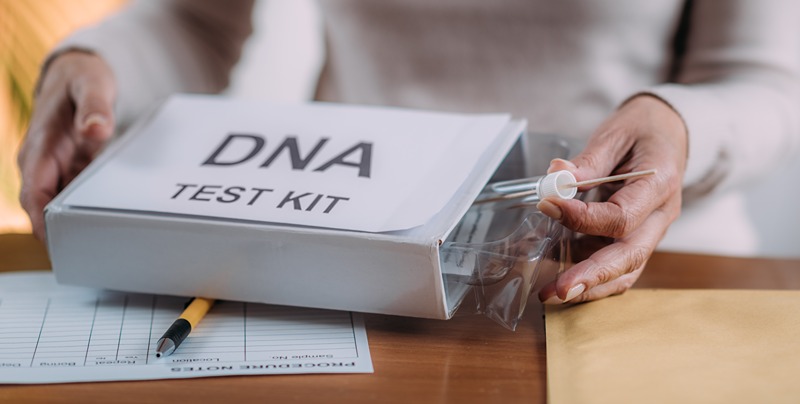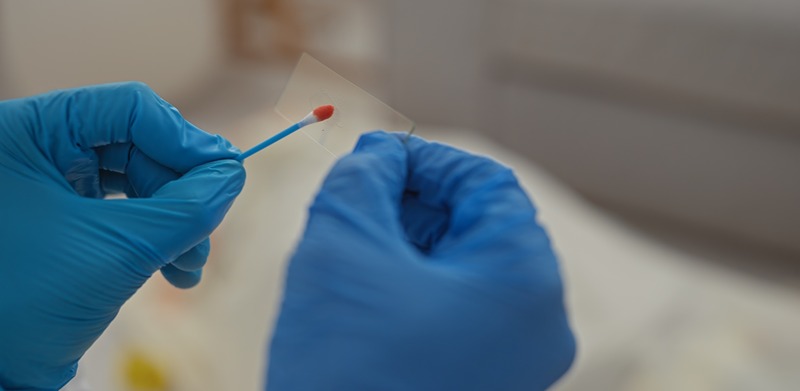Ancestry.com DNA, Criminal Charges and Cold Cases

The rise of consumer DNA testing services like Ancestry.com and 23andMe has changed the way millions of people explore their heritage. But beyond discovering long-lost relatives and ethnic origins, these genetic databases are now playing a role in solving criminal cases — including decades-old cold cases in Arizona.
If you've received an unexpected call from law enforcement or a prosecutor, or you've been contacted because your DNA or a relative's DNA was found in a criminal investigation, you're not alone. Many people have been caught off guard by how far back investigators can reach using these genetic tools.
This article discusses the following:
- How Arizona Law Uses DNA in Criminal Investigations
- How Law Enforcement Accesses Ancestry.com and Other Consumer DNA Databases
- What Crimes Are Commonly Solved Using Familial DNA?
- What Are the Penalties If You're Charged Based on DNA Evidence?
- Defense Strategies for DNA-Based Charges
- FAQs About DNA, Ancestry Sites, and Criminal Charges
- Important Things to Remember
- How Kolsrud Law Offices Can Help
This article breaks down how your DNA — or your family's DNA — can lead to criminal charges. We explain the legal framework in Arizona, what federal laws apply, what privacy protections exist (and don't), and how a criminal defense attorney like Josh Kolsrud can help if you're under investigation or facing charges based on genetic evidence.
How Arizona Law Uses DNA in Criminal Investigations
Under ARS § 13-610, Arizona law requires that individuals convicted of certain crimes submit a DNA sample to the Arizona Department of Public Safety.
The DNA is then entered into the Arizona DNA Identification System, which is also linked to the national CODIS (Combined DNA Index System). This system allows law enforcement agencies to compare DNA from crime scenes to profiles stored in the database.
Highlights of ARS § 13-610 include:
- Mandatory DNA collection for those convicted of felonies and some misdemeanors.
- The database can be searched not just for exact matches, but also familial matches (i.e., close relatives).
- Law enforcement can retain DNA even if charges are later dropped, unless the individual petitions to have it expunged.
This means that even if you’ve never committed a crime, your close relative’s decision to submit a DNA sample could indirectly link you to a cold case investigation.

How Law Enforcement Accesses Ancestry.com and Other Consumer DNA Databases
Most commercial DNA testing companies do not automatically share your data with law enforcement. However, some platforms, such as GEDmatch, allow users to opt-in to allow police searches.
Others, like Ancestry.com and 23andMe, generally resist providing access without a subpoena or warrant.
That said, police agencies can:
- Create fake profiles to upload crime scene DNA and search for familial matches.
- Obtain court orders or search warrants compelling companies to turn over genetic information.
- Access publicly available profiles uploaded to platforms that allow such use.
For example, the Golden State Killer case was solved using GEDmatch by uploading crime scene DNA and matching it to distant relatives. Arizona agencies have used similar methods in high-profile cold case investigations.
What Crimes Are Commonly Solved Using Familial DNA?
Familial DNA searches are typically reserved for violent felonies and cold cases with no other leads. In Arizona, this often includes:
- Sexual Assault (ARS § 13-1406)
- Homicide or Murder (ARS § 13-1104, § 13-1105)
- Kidnapping (ARS § 13-1304)
- Child Abuse Resulting in Death (ARS § 13-3623)
- Aggravated Assault (ARS § 13-1204)
Real-World Example: In 2022, Arizona detectives solved a 1985 homicide in Maricopa County by identifying the suspect through a family match on a genealogy site. The original suspect had died, but his brother's DNA provided the match, leading to exhumation and confirmation.
Even if you're not a suspect, a close familial connection to someone in a database may bring investigators to your door.
Contact us today to schedule a
FREE CONSULTATION and learn
how we can help you.
What Are the Penalties If You're Charged Based on DNA Evidence?
When a cold case is revived using DNA evidence, the charges filed are typically for serious felonies. In Arizona, many of these offenses carry lengthy prison sentences, and the passage of time does not diminish the severity of the penalties.
Because there is no statute of limitations for certain felonies in Arizona, including homicide and sexual assault involving minors, people may face prosecution decades after the original crime occurred. Even first-time offenders can face mandatory prison terms, and penalties may be enhanced if the case involves aggravating factors.
Here's a breakdown of common penalties based on the type of charge:
| Charge | Classification | Potential Sentence | Relevant Statute |
| First-Degree Murder | Class 1 Felony | Life in prison or death penalty | ARS § 13-1105 |
| Second-Degree Murder | Class 1 Felony | 10 to 25 years in prison | ARS § 13-1104 |
| Sexual Assault | Class 2 Felony (Dangerous) | 7 to 21 years; 10.5 years presumptive for first offense. Enhanced under ARS § 13-705 if the victim is a child. | ARS § 13-1406, § 13-704, § 13-705 |
| Child Abuse Resulting in Death | Class 2 Felony (Dangerous) | 10 to 24 years; longer if prior offenses apply | ARS § 13-3623 |
| Aggravated Assault with Serious Injury | Class 3 Felony (Dangerous) | 5 to 15 years in prison | ARS § 13-1204 |
Legal consequences vary depending on your criminal history, the age of the alleged offense, and whether aggravating or mitigating circumstances exist. In some cases, even old DNA evidence can lead to pre-trial detention or denial of bail.
Defense Strategies for DNA-Based Charges
DNA may seem like indisputable evidence, but there are several ways an experienced attorney can challenge its validity or its role in the case. Here are five common defense strategies that Josh Kolsrud and Kolsrud Law Offices may consider when defending clients charged as a result of genetic database use:
- Chain of Custody Issues
DNA evidence is only admissible if it has been handled properly from collection to lab testing. Any breaks or irregularities in the chain of custody may render the evidence unreliable. - Secondary Transfer or Contamination
DNA can be transferred indirectly — for example, by touching a surface that later comes into contact with a victim. Evidence of potential contamination may support a motion to exclude the DNA. - Fourth Amendment Violations
If the DNA was obtained through a warrantless search or questionable methods (like uploading crime scene DNA to a genealogy site without proper consent), the defense can argue for suppression under the Fourth Amendment. - Lack of Corroborating Evidence
DNA alone rarely tells the whole story. If there are no eyewitnesses, video footage, or motive, it may be possible to raise reasonable doubt about whether the defendant was involved at all. - Familial Misidentification
If the DNA match came from a relative rather than the defendant, the defense can argue that the state’s investigation improperly jumped to conclusions without ruling out other family members.
Josh Kolsrud’s experience handling over 3,500 cases and more than 100 trials — including high-profile federal cases — allows him to identify procedural flaws and constitutional violations that others might overlook.
FAQs About DNA, Ancestry Sites, and Criminal Charges
Can police really use DNA from a relative to investigate me?
Yes. If your relative voluntarily submitted DNA to a database, law enforcement may locate you through familial matching techniques. They may use that lead to request a direct DNA sample from you.
Is it legal for police to use GEDmatch or Ancestry.com to solve crimes?
Generally, yes — if the DNA profiles are public or obtained through a valid court order. Courts have upheld the use of genealogy sites in many cases, though legal challenges continue.
Can I refuse to give a DNA sample if police ask?
You can refuse unless police have a warrant or you’re under arrest for a qualifying offense. Always consult a criminal defense attorney before agreeing to any DNA collection.
What if the crime happened 20 or 30 years ago? Can I still be charged?
Yes. Arizona law does not have a statute of limitations for certain crimes like murder or sexual assault involving minors, meaning you can be prosecuted decades later.
Will my DNA be in CODIS if I’ve never been arrested?
Not usually. But if your relatives have submitted samples to public or semi-public databases, police may still locate you through familial DNA searches.
Can I get my DNA removed from a police database?
A person may request removal and destruction of their DNA profile if their conviction or adjudication is reversed, set aside, or the charges are dismissed or not filed.
Important Things to Remember
- Arizona law permits the use of familial DNA from genealogy sites in serious criminal investigations.
- You can be linked to a crime even if you never submitted your own DNA sample.
- There is no statute of limitations for murder or some sexual offenses in Arizona.
- DNA alone is not always conclusive and can be challenged in court.
- Police must still follow constitutional rules when collecting and using genetic evidence.
How Kolsrud Law Offices Can Help
An award-winning criminal defense attorney Since 2006
Why Choose Josh Kolsrud
With over 100 trials to his name, and years of experience as a state and federal prosecutor, Josh understands the law, the legal process, and your rights. Josh is also committed to representing every client with utmost integrity and dedication
Experience
Josh has prosecuted major crimes on the state and federal level, led a successful anti-human sex trafficking operation that saved lives, and argued before countless juries and justices for his clients
Expertise
Josh is an expert in both Arizona and federal criminal law, and is ready to put that expertise to work for you.
Dedication
As a prosecutor, Josh saw far too many defendants lose their livelihood due to poor representation. Josh will always give every client his complete attention and effort
Get a Free Initial Consultation:
Complete our form below to get a free case review.
or call us at (480) 999-9444.
